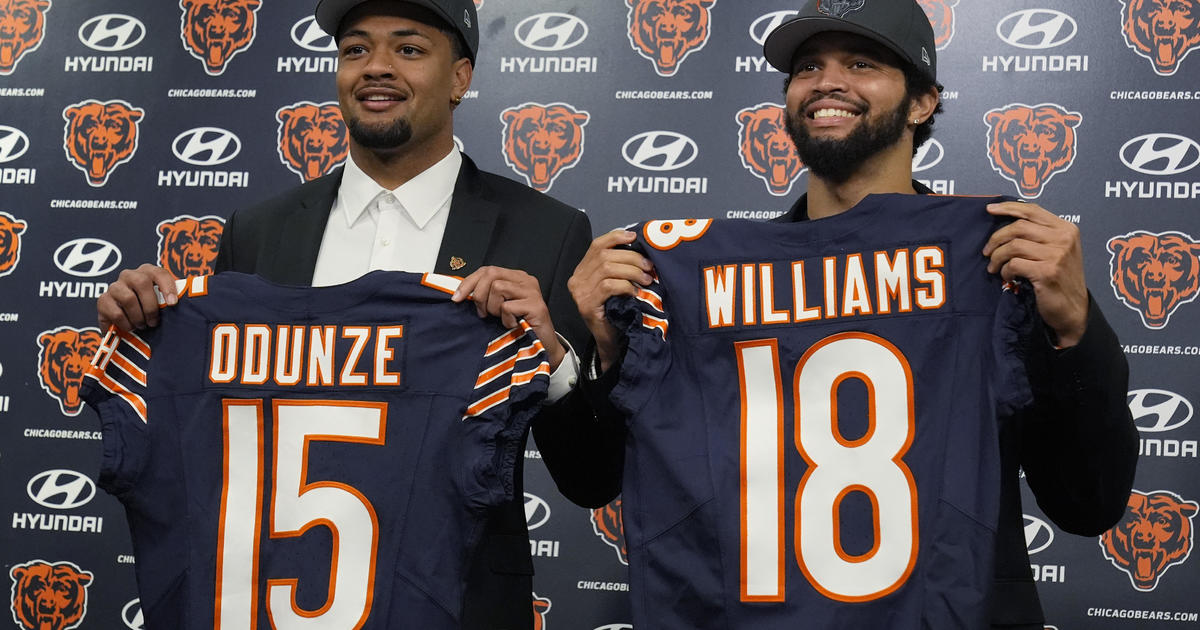Baffoe: Wheldon's Death A Tragedy That Is Not A Tragedy
By Tim Baffoe-
(CBS) I'm going to get all English teacher on you for a minute here.
"Tragedy" is a word derived from Ancient Greece that became an art form in which the protagonist (sort of the main character, for those who slept through high school) meets his or her demise based on his or her own character flaw—a "tragic flaw," if you will. In literary tragedies the character's death is very much that person's own fault and probably could be avoided but is not.
In that sense the audience feels bad for the character, but also wishes to show the character that it all could have been prevented. Read your Shakespeare.
As English speakers tend to do, the word tragedy has been corrupted and reshaped and forced through the round hole of what suits the convenience of language. It is now often used (erroneously) as an umbrella to describe anything unfortunate usually resulting in death—a skiing accident, a heart attack, a house fire. Such things are not tragedies. Unfortunate, horrible, gut-wrenching, yes, but not tragic in the original sense of the word.
IndyCar driver Dan Wheldon, who died in a fiery crash yesterday at Las Vegas Motor Speedway, was not a victim of tragedy in the latter sense either. He, like his racing colleagues, engage in a "sport" (I still am hesitant to categorize racing as such, but another argument for another time) in which they put themselves in harm's way immediately and consistently. The spectre of death looms at every car race, even if the death of a driver is quite rare.
Wheldon is the fourth IRL driver to die on a track since 1996. Twelve NASCAR drivers have died at work since 1989, five CART and four Formula One drivers since 1982, four NHRA drivers since 2004, and two ARCA drivers since 2001. Not exactly an epidemic, but not exactly that which completely catches us by surprise when it happens. I mean, officials even have plans ready for when such a death occurs, as do the other racers. What does that say?
Death is linked to auto racing, just as we are finding now that brain injuries, many fatal, are so with boxing, football, and other sports. And to demand that athletes risk their lives, immediately or not, for our pleasure and then to be shocked when those lives are then lost is inane. You don't get to have it both ways. If you take pleasure in watching life-risking activity, you have to expect such outcomes. You need not like the outcomes, but do not feign shock.
Indy racing involves a person operating a machine at extremely high speeds in such a manner that the slightest mistake can prove disastrous, even fatal (for that driver or others), as was seen yesterday. I cannot find how that equates to what the modern definition of tragedy is. Wheldon understood what he was getting into, and while I do not mean to convey that he "got what he deserved" by any means, forgive me if my reaction to his death is "Well… yeah."
If I drove my car on the Dan Ryan at 200 mph and crashed it and died, would my death be tragic? Of course not. You would call me an idiot and rightly so. So why should it be different for Wheldon then? Because he was a celebrity and we love to mourn celebrities? Because he died entertaining people?
Nobody should ever die as a price for our entertainment. Never. This is much of the reason I do not find motor sports entertaining. I feel awful for Wheldon's wife who has lost a husband and his children who will never truly know their father. But I cannot bring myself to mourn a man who participated in an activity where death is always a real possibility.
And notice what I just wrote there, you who are ready to counter argue with "Theoretically you can die playing any sport." Yes, one can die playing any sport. Or walking out the front door. Or cooking a meal. The odds are not comparable to getting in a hunk of metal and making it go at extreme speeds amongst other hunk of metal doing the same thing minute distances away. And not often in a straight line.
Nor is such a thing comparable to a cop or firefighter or soldier who dies in the line of duty, though he or she knew what he or she was getting into. Such professions are necessary, cars going fast for entertainment purposes are not.
But since Wheldon made the choices that led to his passing, perhaps his case may be deemed tragic in the Shakespearean sense. In the drama of Shakespeare and others there exists "dramatic irony," which is when the audience knows something crucial to the plot that characters do not or refuse to acknowledge. As an audience member—a very distant one—I have long yelled out "Your sport is completely stupid because you're risking your life to see who can operate machinery better."
That angers participants and fans, I know. It's okay. Rarely do "fanatic" and "logic" meet. Other audience and cast members expressed concerns yesterday, by the way, that the track in Vegas was too dangerous for a 34-car field at 225 mph, but I'm the bad guy, right?
But what I yell is dramatic irony. The characters do not hear me or will not acknowledge me. The race goes on. A life is lost that did not have to be.
There is your tragedy. Dramatic literary tragedy. And just as I do not feel bad for tragic heroes Macbeth or Brutus, I do not feel bad for Wheldon. But like those two tragic literary characters, I wish I could show him the error of his ways, prevent what happened, put him on the right path, not drive a car really fast in dangerous conditions for a living. But I can't.
As a reader of tragic drama does, I mourn the situation, not the man. For as Cassius famously said to Brutus in Julius Caesar, "The fault, dear Brutus, is not in our stars but in ourselves…"



